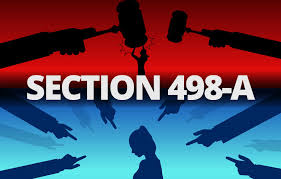
The recent ruling by the Supreme Court imposing a cost of Rs 5 lakhs on a wife’s father for lodging false Section 498A IPC cases against the husband at different places to harass him is a significant development in the realm of legal justice. This decision sheds light on the misuse of legal mechanisms and emphasizes the need for accountability in legal proceedings.
The case, which involved allegations of harassment under Section 498A IPC, underscores the importance of upholding the integrity of legal processes and preventing their misuse for ulterior motives. The Supreme Court’s intervention in imposing a substantial cost on the petitioner’s father sends a strong message against frivolous litigation and abuse of legal rights.
Justice Vikram Nath and Justice Prashant Kumar Mishra, who presided over the case, emphasized the gravity of the situation and the need to deter such actions that cause undue harassment and burden on the legal system. The judgment serves as a deterrent to individuals who may attempt to manipulate legal avenues for personal vendettas or harassment.
The case, titled PARTEEK BANSAL vs. THE STATE OF RAJASTHAN & ORS., highlights the importance of fair and just legal proceedings, where evidence and facts are meticulously evaluated to ensure justice is served. The Supreme Court’s decision to impose a financial penalty on the petitioner’s father underscores the judiciary’s commitment to upholding the principles of justice, fairness, and accountability.
This ruling also serves as a reminder to legal practitioners, litigants, and the public about the ethical responsibilities associated with legal actions. It reinforces the idea that legal recourse should be sought with sincerity, honesty, and respect for the judicial process, rather than as a tool for harassment or manipulation.
The judgment is also a testament to the effectiveness of the legal system in addressing and rectifying instances of misuse and abuse. It sets a precedent for future cases involving similar circumstances and sends a clear message that the judiciary is vigilant in safeguarding the integrity of legal proceedings.
Furthermore, this ruling aligns with the broader goal of promoting access to justice and ensuring that legal mechanisms are used responsibly and ethically. It underscores the need for legal professionals and stakeholders to uphold ethical standards and prioritize the pursuit of justice above personal agendas or vendettas.
The Supreme Court’s decision to impose a cost of Rs 5 lakhs on the wife’s father for filing false cases to harass the husband under Section 498A IPC reflects a commitment to upholding fairness, integrity, and accountability within the legal system. It reaffirms the judiciary’s role in deterring misuse of legal avenues and promoting justice for all parties involved.






